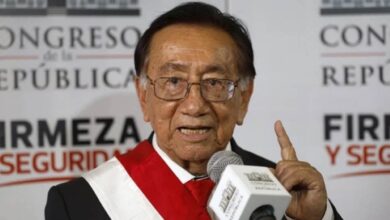Meeting with Trump shows interest in the region
The President of the United States received the presidents of Brazil, Panama, Colombia, and the vice president of Argentina at the Palace Hotel

In New York City, United States, everything was ready for the 72nd United Nations General Assembly attended by about 200 heads of State to address issues such as protection of the environment, sustainable development, and peace. However, the time is ripe for high-level dialogues between countries. For the US, the agenda began with a meeting with some of the leaders of Latin American countries where the main topic was the Venezuelan crisis. But for the region’s heads of State, meeting with President Trump was also a space for bilateral dialogue. Colombia was able to discuss drug trafficking with General John Kelly after President Trump’s administration disqualified the anti-narcotics fight made by the South American country.
For Santos, the dinner with the American president was an important moment because, just a few days ago, a memorandum was sent by the US government to the US State Department in which he warned about the possibility of “decertifying ” Colombia for the progressive increase of illicit crops, a matter that is of vital importance for the Colombian government. The Colombian head of State said, before leaving for New York, that to combat this issue it is necessary to have a co-responsibility and that “nobody has to threaten us to face this challenge”.
Trump’s appointment with Latin American leaders prior to the United Nations Assembly reveals his concern about what is happening in the Venezuelan country and in the region, as well as showing his closeness to them and the alliances he has with them. Although the presence of the president of Peru, Pedro Pablo Kuczynski, had been confirmed, Kuczynski canceled at the last moment; another of the guests was Enrique Peña Nieto, who decided not to attend the aforementioned meeting, and to be present at the 32nd anniversary of the 1985 earthquake.
All of these leaders are critical of the government of President Nicolas Maduro, but they still have some differences on how the international community should position itself in the face of the Venezuelan crisis. One of the clearest of these differences was when Trump publicly stated that the United States had “many options for Venezuela, including a possible military option if necessary”.
Latin American Post | Carlos Eduardo Gómez Avella
Copy edited by Susana Cicchetto





